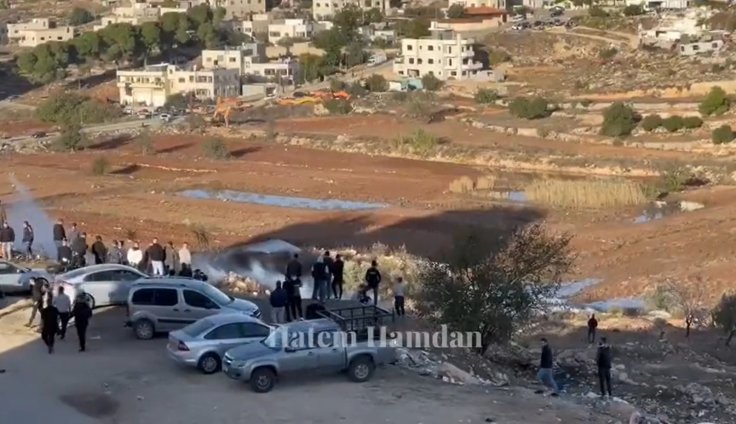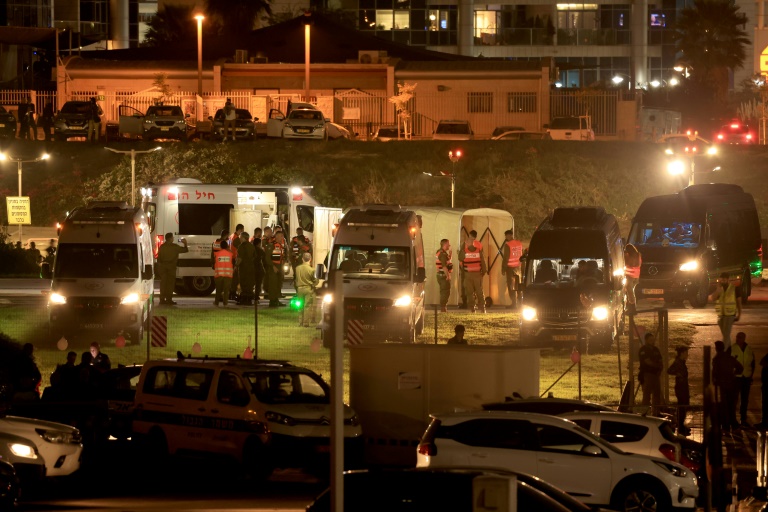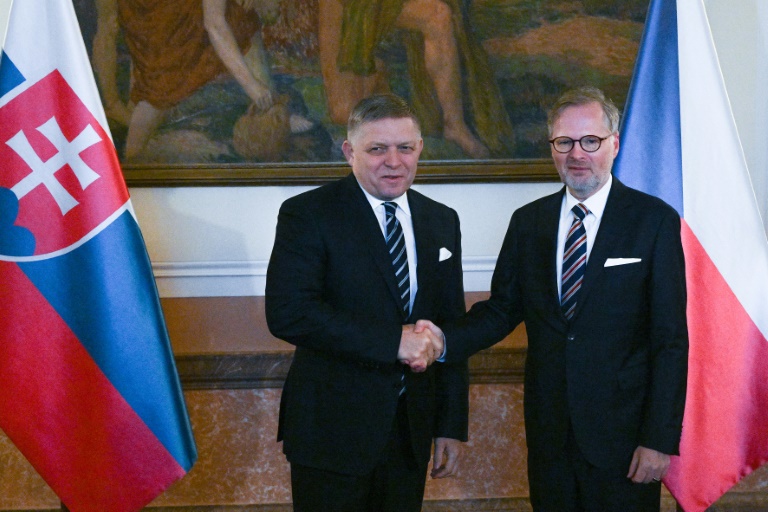The first group of hostages has been released from Gaza after 48 days of captivity. This release is part of a truce agreement between Israel and Hamas that came into effect on Friday morning. Thirteen Israeli women and children, who were part of the group of hostages, have been handed over to the Red Cross in Gaza, Israeli media reported.
Along with them, 12 Thai hostages, who were also kidnapped and taken into the territory by the terror group in its October 7 attack on Israel were also released. They are currently en route to the border crossing with Egypt as part of the truce agreement between Israel and Hamas.
Freed at Last
X
The next step involves the transfer of the released hostages to the Israel Defense Forces (IDF), who will then transport them by helicopter to a hospital located in central Israel.
Prime Minister Srettha Thavisin of Thailand has also confirmed that the 12 Thai nationals held in Gaza have been released.
The Thai hostages have reportedly crossed through the Rafah crossing and are currently en route to Israel’s Hatzerim air base.
From there, they will be escorted to a hospital, Thailand’s Ministry of Foreign Affairs said.
As part of the agreement that temporarily halted the seven-week conflict in the Gaza Strip, Israel is releasing 39 Palestinian prisoners—comprising 24 women and 15 teenagers. This development follows an attack by Hamas that triggered the recent hostilities.

X
The roster of civilians set to be released from Gaza has been finalized, but it was not disclosed to the public in advance. Among the 240 captives taken into Gaza by Hamas, around 30 are believed to be children.
According to two sources with close ties to Hamas, it has been confirmed to AFP news agency that certain hostages have been transferred to the Red Cross for repatriation to Israel, DailyMail.com reported.

X
“Half an hour ago, the prisoners were handed to the Red Cross who will take them to the Egyptians and the Israelis who are due to receive them,” one of the sources said, according to the outlet
Nervous and Anxious Wait
The families of the kidnapped hostages anxiously watched news broadcasts as vans carrying their loved ones entered Egypt. There was an outpouring of joy when it was reported that the vans had successfully crossed the Rafah crossing.

X
The people involved in the deal are instructed to handle the hostages with the utmost sensitivity. Some of the children held in Gaza since October 7 lost their family members in the attack, with their homes in southern Israel destroyed.
It remains unclear whether they were told of these losses during captivity, but social workers are expected to communicate this information to any children who have lost loved ones.
The fragile four-day truce commenced at 7 am local time (12 am EST), marking the first time in nearly seven weeks that guns were to be laid down across the region.
Throughout the ceasefire period, it is expected that at least 50 hostages will be released, leaving approximately 190 in the custody of Palestinian militants.
n return, the release of 150 Palestinian prisoners is expected. The agreement also aims to deliver additional help to 2.4 million residents facing shortages of essential goods due to Israel’s tightened siege on the territory.
Around 50 trucks carrying food aid, along with three fuel trucks and four with gas, entered the area on Friday morning, according to Wael Abu Omar, the director of communications on the Palestinian side of the Rafah crossing point with Egypt.
The Israel Defense Force (IDF) stated that its military has completed operational preparations in alignment with the defensive positions during the pause.
Ismail Haniyeh, the leader of Hamas abroad, affirmed the group’s commitment to adhering to the terms of peace, contingent on reciprocal compliance from Israel.
The release comes just weeks after Americans Judith Raanan and her 17-year-old daughter, Natalie, were released, followed by two Israeli women, 85-year-old Yocheved Lifshitz and 79-year-old Nurit Yitzhak.

X
Lifshitz and Yitzhak, whose husbands are still held hostage, were abducted from Kibbutz Nir Oz, according to The Jerusalem Post.
The terrorist group announced on its Telegram channel that they released these individuals citing “compelling humanitarian” reasons.
Despite the morning truce, reports indicated that smoke persisted in Gaza, and journalists said they saw artillery fire from inside the enclave for 18 minutes after the ceasefire officially began. Nevertheless, the agreement held, and the initial group was successfully exchanged.

![13 Women and Children Israeli Hostages Freed at Last by as Part of Israel-Hamas Truce Deal; 12 Tai Hostages Also Released [WATCH] 13 Women and Children Israeli Hostages Freed at Last by as Part of Israel-Hamas Truce Deal; 12 Tai Hostages Also Released [WATCH]](https://data.ibtimes.sg/en/full/71352/israel-hostage-release.jpg)





